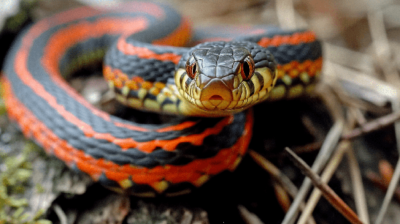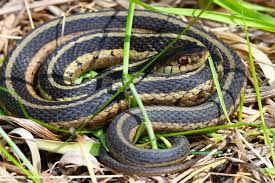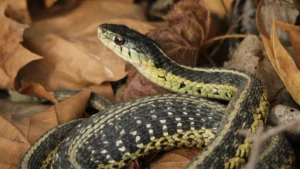Garter snakes are fascinating creatures that can be found in various habitats across North America. While many people are familiar with their distinctive markings and docile nature, some may wonder: do garter snakes hiss?
Yes, garter snakes do hiss. Hissing is one of the defense mechanisms that garter snakes use when they feel threatened or cornered. While not as loud or dramatic as the hissing of some other snake species, garter snakes will emit a low, hissing sound by forcibly expelling air through their glottis, the opening in the throat used for breathing.
This hissing behavior is meant to intimidate potential predators and give the snake an opportunity to escape.
Understanding Snake Communication

Understanding snake communication, including hissing, can help you interact safely with these reptiles. Here’s a brief guide:
- Hissing as a Warning Sign: Snakes hiss primarily to warn potential threats. When you hear a snake hiss, it’s usually a sign that the snake feels threatened or is warning you to back off.
- Stay Calm: If a snake hisses at you, it’s essential to stay calm. Most snakes won’t attack unless they feel cornered or threatened.
- Give Space: Back away slowly to give the snake space. This reduces the threat it perceives and decreases the likelihood of it striking.
- Respect Its Territory: If you encounter a snake in the wild, remember that you’re in its territory. Give it the respect it deserves and avoid disturbing it.
- Avoid Aggressive Behavior: Do not attempt to touch or handle the snake. Aggressive behavior may provoke the snake to strike.
- Observe from a Distance: If you want to observe the snake, do so from a safe distance. Use binoculars or a camera with a zoom lens to get a closer look without disturbing the snake.
- Learn the Signs: Understanding other signs of snake behavior, such as body language and posture, can also help you interpret what the snake is trying to communicate.
- Educate Yourself: Take the time to learn about the snakes in your area, including their behavior and habitat. This knowledge will help you interact with them safely.
Remember, most snakes don’t want to interact with humans and will only do so if they feel threatened or cornered. By understanding snake communication and behavior, you can avoid conflicts and coexist peacefully with these fascinating reptiles.



